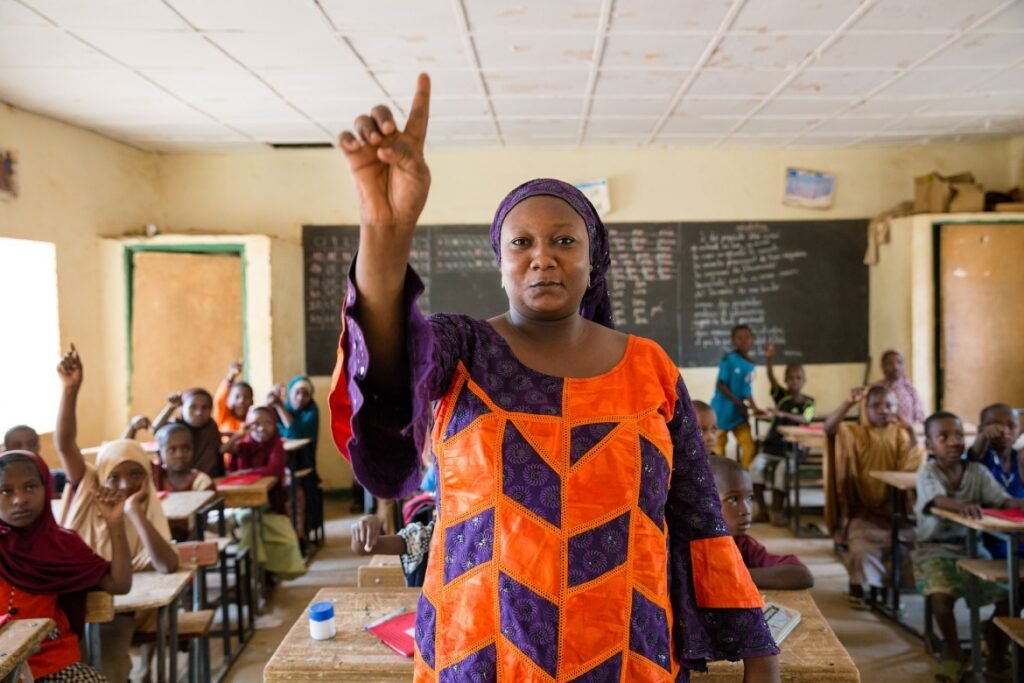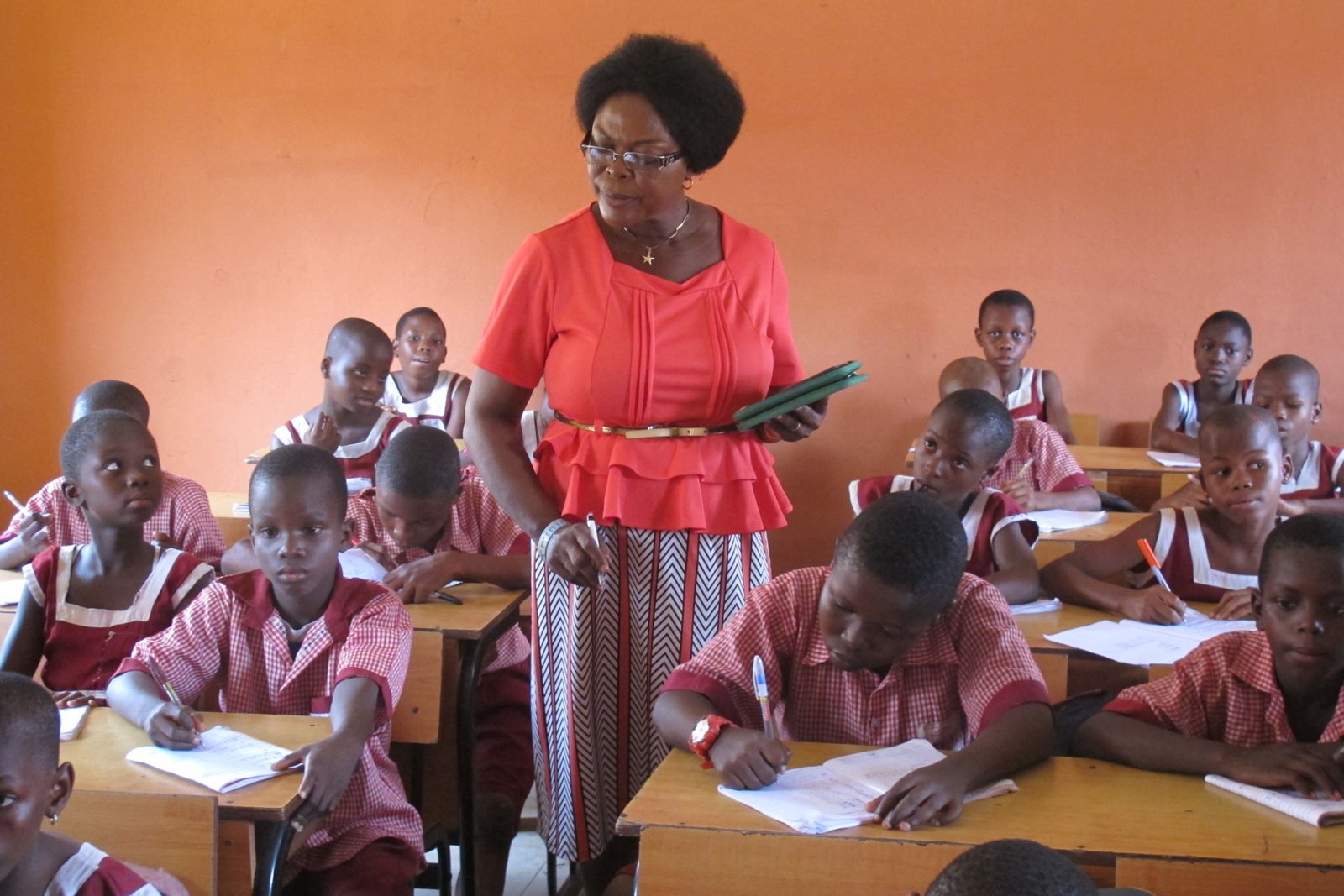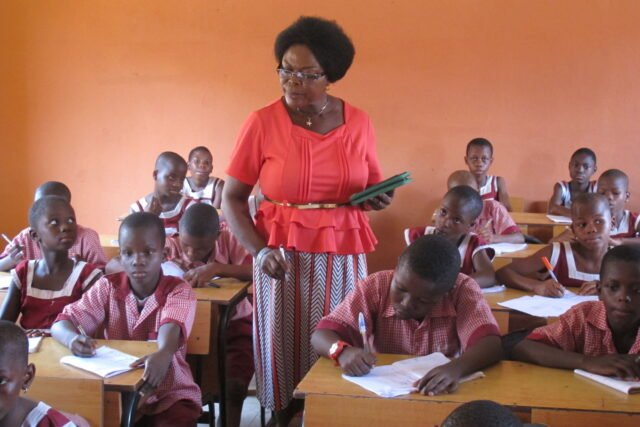In classrooms across West Africa, many students still experience teaching that leans heavily on passive learning — lectures, note-taking, and rote memorisation. Yet new ideas are proving that this model, while familiar, may not unlock students’ fullest potentials. Two concepts, the ICAP framework and the growth mindset, are moving to the frontlines of educational reform, offering educators tools to transform how learning happens. In this article, we explore how combining ICAP with growth mindset principles can reshape classrooms in Ghana, Nigeria, Sierra Leone and beyond, for the better.
Table of Contents

What Are ICAP and Growth Mindset — and Why Do They Matter?
First, a quick unpacking. ICAP stands for Interactive-Constructive-Active-Passive. It’s a framework developed by scholars (Chi & Wylie, among others) to describe four levels of cognitive engagement in learning:
- Passive learning: students receive information without doing much else—listening to a lecture, reading without interaction.
- Active learning: students do something physical with the material—highlighting, taking notes, maybe doing simple exercises.
- Constructive learning: producing new knowledge or connections—writing explanations, self-reflecting, creating something beyond what was taught.
- Interactive learning: engaging in dialogue, discussion, and building knowledge together with peers.
Each step up the ICAP ladder tends to yield a deeper understanding. Learners in interactive and constructive modes often outperform those stuck in passive or merely active modes.
Then there is Growth Mindset, the theory popularised by psychologist Carol Dweck. This is the belief that ability and intelligence are not fixed traits, but can be developed with effort, good strategies, and persistence. In classrooms where students, and indeed teachers, believe that “we can improve and mistakes are part of learning,” there tends to be more engagement, risk-taking, and higher achievement.
Together, ICAP and the growth mindset complement each other. ICAP provides a scaffold for what learners can do, whereas a growth mindset frames how and why they believe in doing it — underpinning resilience, ownership, and ongoing effort.
What This Could Look Like in West African Classrooms
You don’t have to imagine far. There are already signs that these ideas, if carried out with care, can yield real gains in the West African context.
Shifting from lecture-heavy to discussion and peer work
In many schools, the teacher does most of the talking; students listen, copy, and regurgitate. Under ICAP, there’s a powerful case for replacing or augmenting lectures with interactive and constructive tasks — group discussions, debates, peer instruction, writing reflections. Even simple alteration — asking students to discuss a question in pairs before returning to plenary — can move a class from “active” or “passive” to more meaningful “interactive” work.
Cultivating mindset attitudes
Growth mindset practices might include teacher language that praises effort, strategy, persistence, rather than innate ability (“You worked hard on this,” rather than “You are smart”). Also, helping students see mistakes and failures not as shameful but as stepping stones. For example, regular “error analysis” sessions where students review wrong answers, explore why they were wrong and how to correct them, can reinforce that learning is not about being perfect but about growing.
Training and resources for teachers
Bringing ICAP and a growth mindset into classrooms demands a shift in teacher preparation. Workshops, mentorship, and peer observation can help teachers recognise when students are being passive vs interactive, and equip them with strategies to steer them upward. Also, supporting teachers’ own mindsets matters — they need to believe they can grow too in pedagogy, not feel trapped in “this is how we’ve always done it”.
Addressing local challenges
West Africa’s classrooms often have high student-teacher ratios, limited resources, and sometimes standardized curricula that overemphasize rote memory. To make ICAP and growth mindset work, we need context-sensitive adaptations. Maybe using group work or peer-pairing to compensate for low teacher contact, using low-cost tools, integrating ICAP strategies into existing exam preparation without discarding important content matters, aligning policy incentives so that learning for understanding is valued, not just correct answers on standardised tests.

Evidence & Impact: Real Gains When Students Engage More Deeply
While direct large-scale studies in West Africa remain relatively few, global and regional research suggests strong, promising trends when ICAP and a growth mindset are adopted.
- Studies show that when students move from passive to active to interactive learning, they retain information better, understand concepts more deeply, and are more likely to apply them in new situations.
- Growth mindset interventions have been shown to reduce achievement gaps, especially among students who start with lower confidence or previous weak performance. When students believe they can improve, they try more, ask questions, and persist through difficulty.
- In some West African projects, peer instruction (which aligns with ICAP’s interactive mode) has helped increase conceptual understanding in STEM subjects. Teachers who integrate error analysis and students’ reflections note improved engagement and self-confidence among learners.
These combined outcomes suggest a synergy: when learners believe they can grow, they are more likely to engage in higher ICAP modes; and when classrooms are structured for interactive and constructive learning, a growth mindset is more visible and plausible for students, reinforcing their belief.
What Must Happen for This Transformation to Take Root in West Africa
To go beyond ideas and into sustained change, several steps are essential.
Policy & Leadership Buy-in
School leadership and educational ministries must endorse teaching practices beyond passive learning. That means policies that reward interactive classrooms, teacher training programmes that teach ICAP and growth mindset, and assessment reforms that value understanding, analysis, and discussion over rote recall.
Teacher Professional Development
Regular and sustained training is vital. Teachers need both conceptual understanding of ICAP and growth mindset, and practical demonstration: how to plan lessons, how to manage discussions, how to give feedback, how to build a classroom culture where students feel safe to make mistakes.
Curriculum & Assessment Reform
curricula might need redesigning so that assessments test problem solving, understanding, not just memorization. Exams that include reflective questions, group work, and essays where explanations are required will push teaching toward interactive and constructive modes. A growth mindset can be embedded in assessment feedback.
Resourcing & Classroom Management
Even with large class sizes and minimal materials, creative strategies can work: peer tutoring, using student pairs or small groups, low-cost materials, radio or community-based learning reinforcement can help. Also, classroom management techniques that facilitate dialogue and participation are necessary: establishing norms, equitable participation, encouraging quiet or shy students, and scaffolding discussions.
Monitoring, Research & Local Adaptation
Collect data to know what is working in specific contexts. What works in a Lagos secondary school may not be identical to what works in a rural school in Sierra Leone. Local research can refine ICAP practices and growth mindset strategies to suit language, culture, and resource constraints. Also monitoring helps sustain change rather than having it fade after pilot programmes.

Conclusion: A Classroom Revolution, Not Just an Evolution
Transforming education in West Africa from passive learning to a more engaging, growth-oriented model is more than tweaking classrooms—it’s rethinking what learning, intelligence, and teaching can be. When students believe they can grow and when teaching structures encourage them to think, write, discuss, and collaborate, the whole trajectory changes. Skills deepen, confidence builds, creativity emerges.
These changes are not easy or quick. They require leadership, resources, time, and persistence. But the cost of sticking with the old ways is higher: disengaged learners, shallow understanding, lost opportunities.
For West Africa’s future—its students, workforce, society—the promise of combining ICAP and growth mindset is too big to ignore. The revolution in learning must begin in the classroom, with students who are not just receiving, but interacting, constructing, growing.
Join Our Social Media Channels:
WhatsApp: NaijaEyes
Facebook: NaijaEyes
Twitter: NaijaEyes
Instagram: NaijaEyes
TikTok: NaijaEyes
READ THE LATEST EDUCATION NEWS





